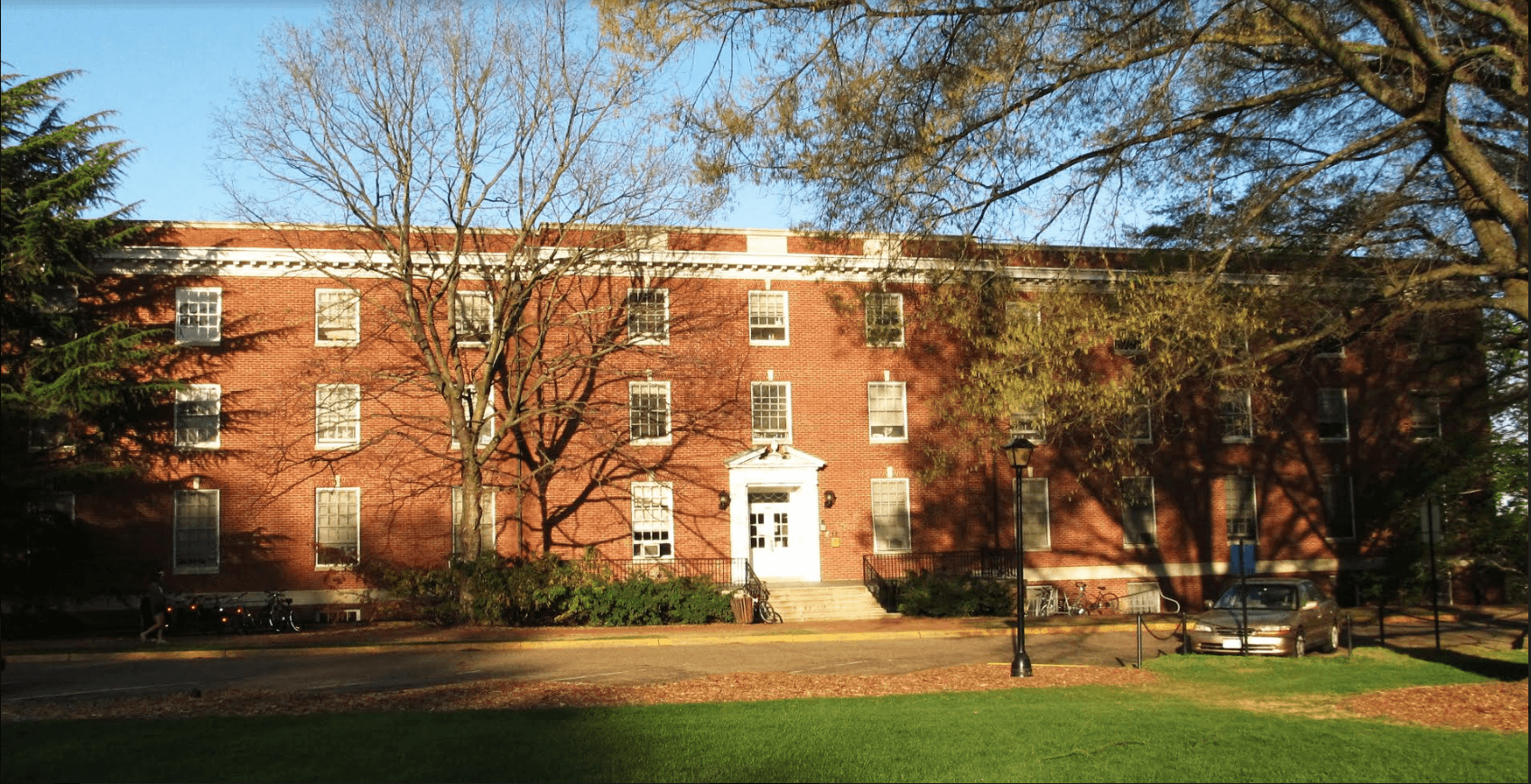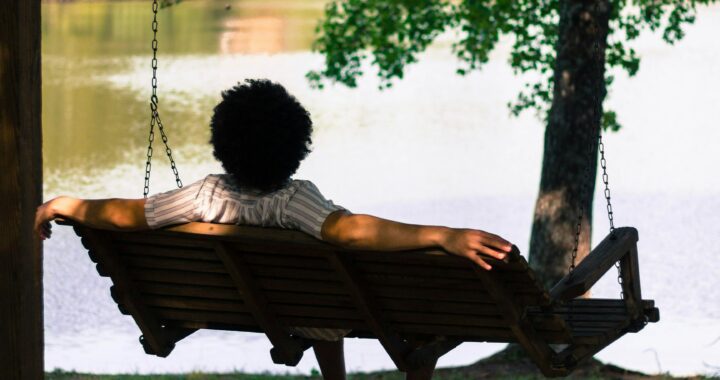More than a name: Why we should learn more about the people behind the names of campus buildings
4 min read
Historic Buildings UMW Blogs
By MARY PRAUGHT
Staff Writer
Growing up with the last name “Praught” it seemed like I was never blessed with the ease of syllabus day that the “Smiths” and “Joneses” I knew had. People mispronounced our last name so often that my family created a little slogan to help others remember – “it’s ‘Praught’ like ‘taught,’ just replace the ’t’,” we say. Nobody likes having their name pronounced incorrectly. Your name goes hand in hand with your identity. Needless to say, I was a little surprised when I came to learn that a name that is synonymous with the Mary Washington community has been mispronounced for as long as many of us can remember.
One night during the Christmas season of 2016-2017 academic year, my junior year, I had gone up with a group of students from UMW’s Catholic Campus Ministry to visit the National Christmas Tree in Washington, DC. After we visited the tree we went to get dinner at Metro 29 Diner. While we were waiting for our food, a table next to mine, with three or four older couples, struck up a conversation with us.
 Commenting on the size of our group they asked us where we were from, and after we mentioned we were students from the University of Mary Washington, one of the women at the table got up and came over to speak with us. She introduced herself as Elizabeth Chimento, and said that her mother attended the school when it was still called Mary Washington College and that she was friends with Nina Bushnell, whom the residence hall is named after. However she went on to say that she was always so confused as to why we all pronounced it “bush-NELL” when the ending was actually pronounced “BUSH-nle” (like the end of “purple”).
Commenting on the size of our group they asked us where we were from, and after we mentioned we were students from the University of Mary Washington, one of the women at the table got up and came over to speak with us. She introduced herself as Elizabeth Chimento, and said that her mother attended the school when it was still called Mary Washington College and that she was friends with Nina Bushnell, whom the residence hall is named after. However she went on to say that she was always so confused as to why we all pronounced it “bush-NELL” when the ending was actually pronounced “BUSH-nle” (like the end of “purple”).
We were able to speak with Chimento for a little while longer and she eventually sat back down as our food arrived to the table. Being in a journalism course at the time, I realized that this could have the makings of an interesting article. So I grabbed a pen and scrap of paper, went back over to her table, and re-introduced myself. I explained to her that I found her story interesting and wondered if I could meet with her to discuss it more.
At first it seemed like my schedule would never be free enough to arrange an interview with Chimento, but eventually the stars aligned and we managed to meet up the following academic year to talk all about Mrs. Bushnell.
Chimento told me that her mother was a student at Mary Washington College and greatly adored Bushnell, frequently talking about her, and remembering in particular her extensive vocabulary, and striking red hair. It seemed as if there was an air about her that attracted others to her.
One summer, when Chimento was a young girl, her family went to Clearwater to visit some relatives and on their way back her mother decided to stop by and visit Bushnell. Chimento noted that after what seemed like a very long time waiting in the hot car outside her mother walked back out with Bushnell to introduce her to the family.
“She made an impression when you met her,” said Chimento. “That was my one and only time meeting her but I could see why she was so revered.”
During her time at Mary Washington College, Bushnell worked as the Dean of Women from the early 1920s to the early 1950s, and quickly took on a parental role for the women attending college at the time. Unlike today, how students are essentially on their own once they move onto campus, away from their hometowns, Bushnell kept a close watch over “all her girls.”
Every evening for dinner at 6 p.m. in the former Seacobeck dining hall, Bushnell sat with a group of girls dressed in full length dresses and skirts, to whom she would teach table etiquette, supposedly in order to help the girls distinguish themselves from the apes — with such a notion, she may have been seen as quite strict, but was ultimately held as extremely caring towards her students.
It was also remarked that since she was in charge of the residence hall telephone, whenever there were young men who wanted to speak with any of the girls, they had to go through her first. Likewise she would be the first one to see them as they came to pick up their dates, if she noticed anything she considered distasteful, such as the smell of smoke or alcohol, she would send them packing.
Lois Hornsby, a former student, remembered Bushnell well and kept in touch with her after she retired.
“I worshipped the ground she walked on,” said Hornsby. “Mrs. Bushnell brought refinement and good culture to Mary Washington College.”
Interestingly enough, when Bushnell was approached about having a building named after her she remarked that being remembered in the hearts of the girls she was with would be satisfactory recompense.
Although the era of full length gowns and etiquette lessons in the dining hall has passed, properly respecting former UMW faculty ultimately ties back to the preservation of history for generations of graduates to come. So UMW, let’s get it right from here on out, and honor the namesake of Bushnell Hall, who was so beloved in the early years of the University’s development, by correctly pronouncing her name.











